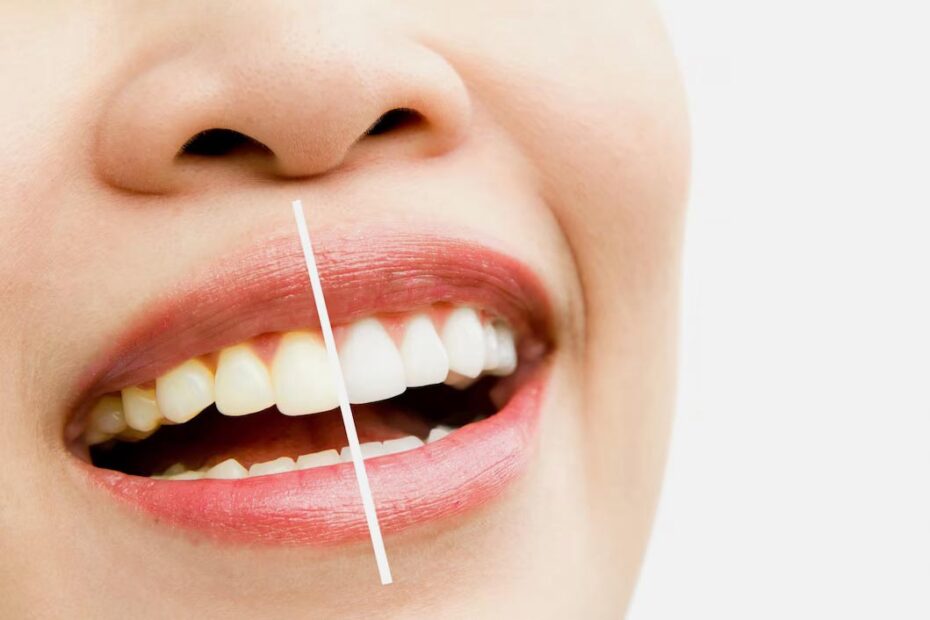Your smile is significant in many aspects of your life, from self-confidence to social connections. However, regularly consuming tea, coffee, and alcohol and smoking may turn your pearly whites into rows of yellow blight. Besides, aging also causes the wearing of tooth enamel and dentin exposure. Since dentin is yellow, it makes the teeth look the same. All these factors have led to the popularity of dental whitening. Here are 9 things you should know before teeth whitening.
- Multiple Techniques
Teeth whitening procedures utilize various techniques and products to lighten teeth, restoring a brighter and more vibrant smile. Professional treatments often involve teeth whitening agents, such as carbamide peroxide or hydrogen peroxide, effectively breaking down stains and discoloration on the tooth surface. These agents oxidize the pigmented molecules, resulting in a lighter tooth shade and a more aesthetically pleasing smile. - Professional Touch Yields Better Results
In-office teeth whitening procedure is usually considered the best way to whiten teeth. It offers more noticeable and long-lasting results than over-the-counter products. While over-the-counter whitening products like whitening strips or toothpaste may provide modest improvements, professional treatments are typically more effective in achieving significant whitening. Dental professionals can use higher-concentration whitening agents and advanced techniques to deliver superior, longer-lasting results. - Tooth Sensitivity Is Inevitable But Temporary
Teeth sensitivity is a common temporary side effect of teeth whitening, but dentists can employ techniques to minimize it. During the whitening process, the whitening agents can temporarily open up the pores of the teeth, exposing the dentin layer and leading to increased sensitivity. However, dentists can apply desensitizing gels or adjust the concentration of the whitening agent to minimize discomfort and sensitivity during and after the procedure. - Best Solution For Extrinsic Stains
Teeth whitening targets extrinsic stains caused by coffee, tea, tobacco, and aging. Extrinsic stains are surface-level stains that accumulate over time due to consuming certain foods and beverages or habits like smoking. Teeth whitening treatments effectively break down these extrinsic stains and restore the original color of the teeth, resulting in a brighter and more youthful appearance. - Every Case Is Unique
You should remember another fact on teeth whitening: individual outcomes can vary based on factors such as the stains' severity and the teeth' natural color. While teeth whitening treatments can effectively lighten tooth shade, the extent of improvement can vary from person to person. The severity of stains, the natural color of the teeth, and other individual factors can influence the final results. Therefore, it makes sense to have realistic expectations. - Teeth Whitening Is Not For Everyone
While teeth whitening is generally safe, it may not be recommended for individuals with specific dental problems. Conditions like gum disease, tooth decay, or enamel erosion may require treatment or management before teeth whitening. Visiting a qualified dentist is important to assess the individual's dental health and determine the suitability of teeth whitening. - Teeth Whitening Results Are Not Permanent
Teeth whitening results are not permanent, but they can last several months to a few years with proper care. The longevity of teeth whitening results can vary depending on various factors, including individual oral hygiene habits, dietary choices, and lifestyle habits. While teeth whitening is not a permanent solution, the results can be maintained for an extended period with proper care and maintenance. Regular touch-up treatments or periodic whitening sessions may be necessary to sustain the desired tooth shade over time. - Teeth Whitening Works Only On Natural Teeth
Veneers or crowns do not respond to traditional teeth whitening methods. Unlike natural teeth, which can be lightened through whitening treatments, the color of veneers and crowns is permanent. Therefore, if you're considering teeth whitening and plan to have veneers or crowns placed, it's advisable to undergo teeth whitening before the cosmetic procedure. It ensures that the color of your natural teeth matches the shade of the veneers or crowns, resulting in a harmonious and uniform smile. - Oral Care Must Go On
Proper oral hygiene and regular dental check-ups can help maintain teeth whitening outcomes. Regular brushing twice daily, flossing once daily, and routine dental cleanings play a crucial role in preserving the effects of teeth whitening treatments. By maintaining proper oral hygiene habits and attending regular dental check-ups, patients can reduce the build-up of new stains and discoloration, prolonging the longevity of the teeth whitening results.
The When considering teeth whitening or any cosmetic dental procedure, selecting a trusted dental professional is crucial. The quality and safety of the treatment depend on the expertise and reputation of the dentist. Click here to book a teeth whitening service at Bonita.


